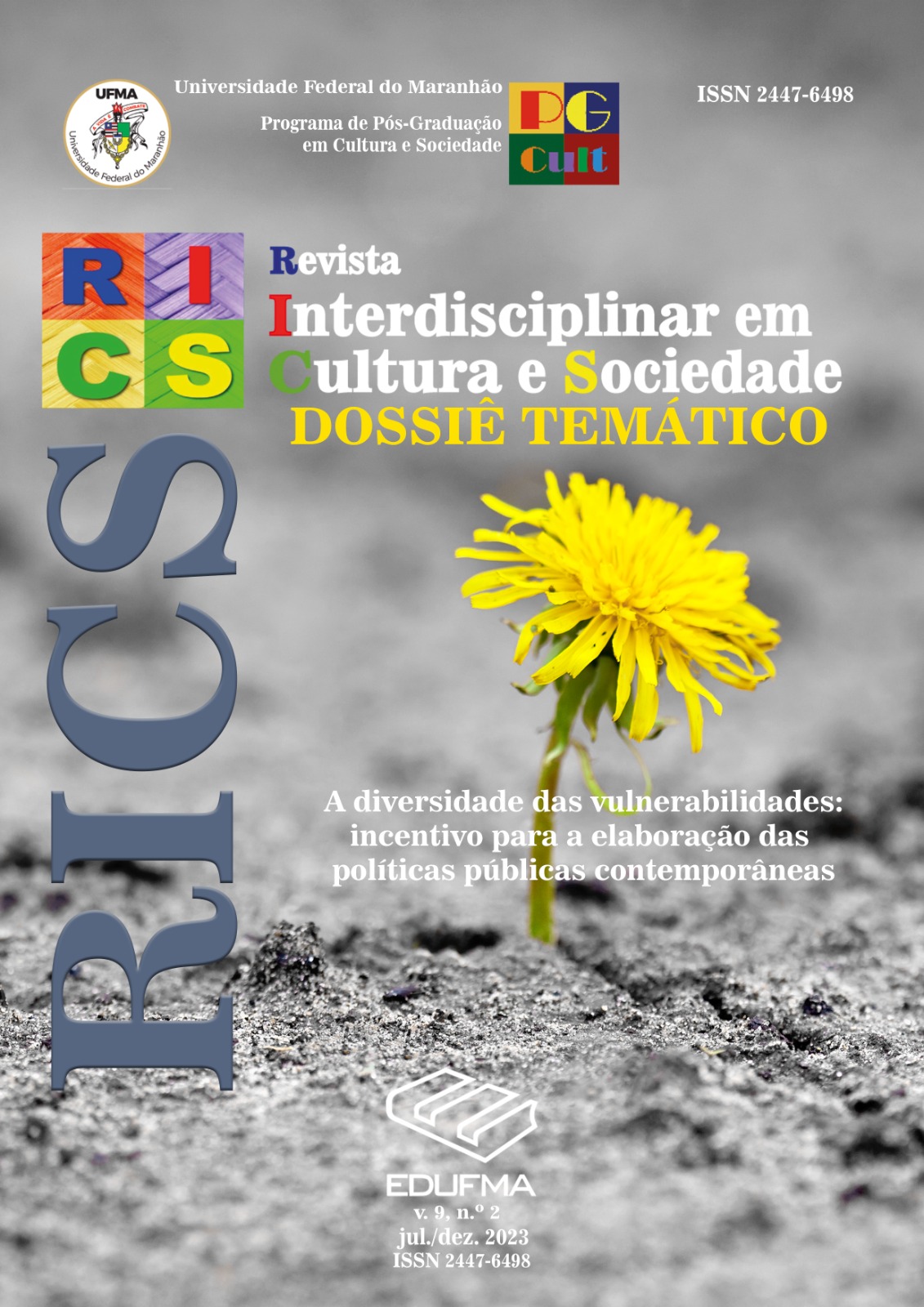O argumento antropológico na disputa da terra indígena Xukuru do Ororubá: uma reflexão sobre a (des)consideração do saber antropológico no julgamento envolvendo direitos indígenas ameaçados pela pretensão política do marco temporal
DOI:
https://doi.org/10.18764/2447-6498.v9n2.2023.13Parole chiave:
Argumento antropológico, Direitos indígenas, Processos judiciais, Tecnicismo jurídicoAbstract
Com as retomadas dos julgamentos do marco temporal das terras indígenas, pelo Supremo Tribunal Federal e da ação de reintegração de posse da aldeia Caípe, pelo Tribunal Regional Federal da 5ª Região – localizada no município de Pesqueira-PE e legalmente pertencente ao povo Xukuru do Ororubá – a autora se viu impelida a dar prosseguimento à sua pesquisa sobre julgamentos envolvendo direitos indígenas, tendo como objeto de reflexão a recepção (ou não) dos argumentos antropológicos pelo judiciário, os quais corroboram para a garantia desses direitos. Destarte, o presente ensaio tem como objetivo refletir sobre a ressonância da argumentação antropológica na aplicação do direito, tendo como pano de fundo o julgamento que decidirá sobre a reintegração de posse da aldeia Caípe, por latifundiário, problematizando o campo de poder discursivo entre o direito e a antropologia, ponderando sobre os princípios da ética que regem, de forma distinta, os dois campos de conhecimento e de atuação profissional.
Downloads
Riferimenti bibliografici
BOURDIEU, Pierre. A força do direito: elementos para uma sociologia do campo jurídico. In: BOURDIEU, Pierre. O Poder Simbólico. Rio de Janeiro: Bertrand Brasil: DIFEL, 1989. pp. 209-254.
CARDOSO DE OLIVEIRA, Luís Roberto. Justiça, Solidariedade e Reciprocidade: Habermas e a Antropologia. In: CARDOSO DE OLIVEIRA, Roberto; CARDOSO DE OLIVEIRA, Luís Roberto. Ensaios Antropológicos sobre Moral e Ética. Rio de Janeiro: Tempo Brasileiro, 1996. pp. 143–157.
COSTA, Mônica Maria Gusmão. Direitos Humanos e Antropologia: reflexões interculturais na teoria e na prática. In Revista Interdisciplinar em Cultura e Sociedade (RICS), São Luís, v. 8, n. 2, p. 103-122, jul./dez. 2022.
_____. Prisão e julgamentos de adolescentes em Pernambuco: uma ferida aberta nos direitos humanos. In JANUÁRIO, Soraya Barreto; SANTIAGO, Maria Betânia do Nascimento; SIQUEIRA, Elton Bruno Soares de (orgs.). Direitos Humanos na América Latina: desafios contemporâneos. São Paulo: Cortez Editora, pp 379-391, 2020.
_____. Impasses e desafios de uma “antropo vogada” no ambiente acadêmico e jurídico. In COSTA, Mônica Maria Gusmão; FIALHO, Vânia; SCHRÖDER, Peter (orgs.). Antropologia e Direito: aproximações necessárias. Recife: Editora UFPE, pp.258-274, 2020.
_____; FIALHO, Vânia. Diálogo entre a Antropologia e o Direito: a ressonância da argumentação antropológica. In: XXVI REUNIÃO BRASILEIRA DE ANTROPOLOGIA, 2008, Porto Seguro, BA. Anais Desigualdade na diversidade, Porto Seguro. v. 1. p. 1-12, 2008.
_____; FIALHO, Vânia. Diálogo entre a Antropologia e o Direito através da análise de processos judiciais envolvendo povos indígenas no Brasil. In: IX CONGRESSO DA REDE LATINOAMERICANA DE ANTROPOLOGIA JURÍDICA, 2015, Pirenópolis, GO. Anais Sociedades plurais e Estados Nacionais: limites e desafios para a efetividade de direitos, Pirenópolis, v. 1. p. 285, 2015.
DOUGLAS, Mary. Como as Instituições Pensam. São Paulo: Edusp, 1998.
ERIKSEN, Thomas Hylland; NIELSEN, Finn Sivert. História da Antropologia. Petrópolis: Vozes, 2007.
FASSIN, Didier (ed.). A Companion to Moral Anthropology. Singapore: Wiley Blackwell, 2016.
FELMAN, Shoshana. O inconsciente Jurídico: Julgamentos e traumas no século XX. São Paulo: Edipro, 2014.
GEERTZ, Clifford. A Interpretação das Culturas. Rio de Janeiro: LTC, pp. 66-67, 2008.
_____. O saber local. Petrópolis: Vozes, 1998.
GRAU, Eros Roberto. Por que tenho medo dos juízes. 7ª ed. São Paulo: Malheiros, 2016.
HABERMAS, Jürgen. Consciência Moral e Agir Comunicativo. Rio de Janeiro: Tempo Brasileiro, 1989.
_____. Direito e Democracia: entre a facticidade e validade. Vol. II. Rio de Janeiro: Tempo Brasileiro, 1997.
_____. A Inclusão do Outro: estudos de teoria política. São Paulo: Loyola, 2007.
LEITE, Ilka B. Questões éticas da pesquisa antropológica na interlocução com o campo jurídico. In: VICTORA, C.; OLIVEN, G. R.; MACIEL. M. E.; ORO; A. P. Antropologia e ética: o debate atual no Brasil. Niterói/RJ: EdUFF, 2004. 65-72.
MALINOWSKI, Bronislaw. Crime e Costume na Sociedade Selvagem. 2ª ed. Brasília: Editora UnB, 2008.
MAUSS, Marcel. Sociologia e Antropologia. São Paulo: Cosac Naify, 2003.
MENDES, Regina Lúcia Teixeira. Do Princípio do Livre Convencimento Motivado: legislação, doutrina e interpretação de juízes brasileiros. Rio de Janeiro: Lumen Juris, 2012.
OLIVEIRA, João Pacheco de. Instrumentos de bordo: expectativas e possibilidades de trabalho do antropólogo em laudos periciais. In: ______. Indigenismo e territorialização. Rio de Janeiro: Contra Capa, 1998. pp. 269-196.
REGO, André Gondim. O trabalho do antropólogo no Ministério Público Federal. Dissertação de mestrado. PPGAS/UNB, 2007.
Downloads
Pubblicato
Come citare
Fascicolo
Sezione
Licenza
Copyright (c) 2023 Revista Interdisciplinar em Cultura e Sociedade

TQuesto lavoro è fornito con la licenza Creative Commons Attribuzione 4.0 Internazionale.

Este trabalho está licenciado com uma Licença Creative Commons Atribuição 4.0 Internacional.


















